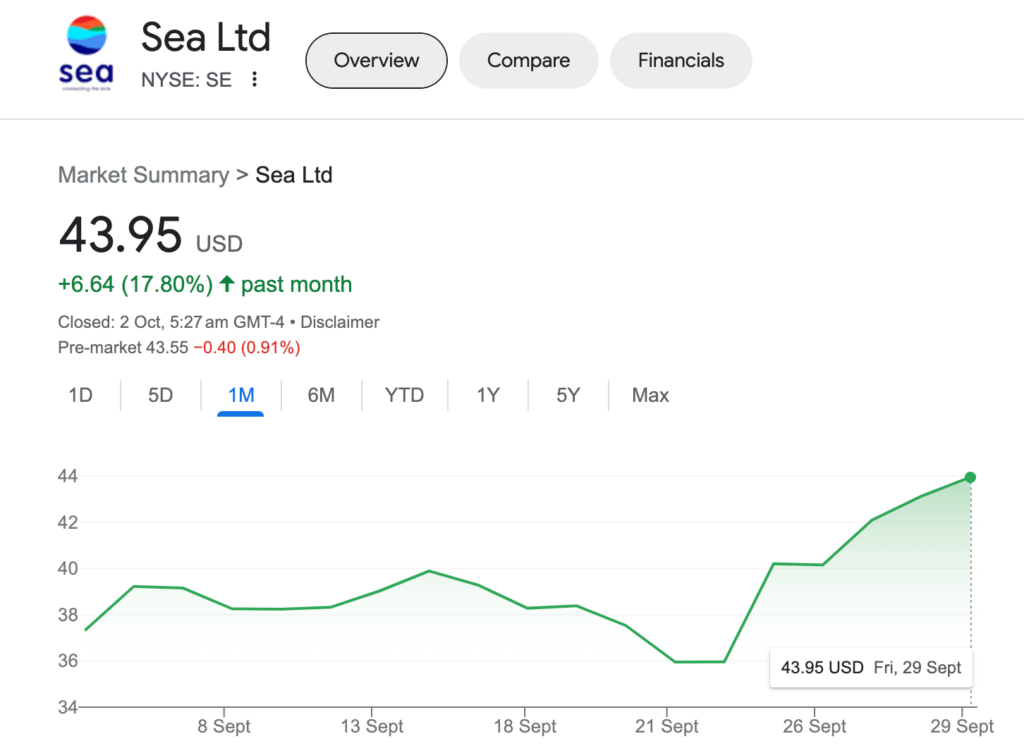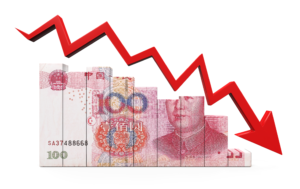In September, the stock price of Sea Limited(SE.US), the holding company of the Southeast Asia eCommerce giant Shopee, experienced a significant growth of more than 17% over the past month, not due to its own initiatives but because of the challenges faced by its competitor, TikTok Shop, in Indonesia. Let’s dive into this drama and its implications for the Southeast Asian e-commerce market.

The Rise and Challenge of TikTok Shop
The world’s most popular short video platform, owned by Chinese tech giant ByteDance, has been making waves in online shopping. Southeast Asia, a region with a staggering population of 680 million, has traditionally been dominated by giants like Singapore’s Shopee, Alibaba-backed Lazada, and Indonesia’s Tokopedia. But TikTok Shop’s entry threatened to disrupt this status quo.
According to a Singapore-based consultancy Momentum Works report, TikTok Shop’s estimated Gross Merchandise Volume (GMV) skyrocketed sevenfold from USD 600 million in 2021 to a whopping USD 4.4 billion last year. By July 2023, TikTok proudly announced that out of its 325 million monthly users in the region, a quarter had made purchases through TikTok Shop.
However, on 26 September 2023, Indonesian President Joko Widodo dropped a regulatory bombshell: new rules that could severely restrict social media platforms, like TikTok, from integrating e-commerce capabilities.
Under the new regulations, social platforms in Indonesia can only promote goods and services and cannot conduct direct transactions. Furthermore, there needs to be a separation between social platforms and e-commerce platforms. He also pointed out that this move is to prevent algorithms from being controlled and to prevent the use of personal data for commercial interests.
Why This Benefits SEA
For TikTok Shop, Indonesia’s new regulations pose a significant challenge. Without a separate operating license, its operations could be severely hampered. But for Sea Limited, this regulatory challenge faced by a competitor presents a golden opportunity.
A substantial portion of Sea’s e-commerce business’s Gross Merchandise Volume (GMV) – between 35% to 40% – originates from the Indonesian market. With TikTok Shop potentially sidelined, Sea Limited could further solidify its position in this crucial market.
Sea’s Position in Southeast Asia
While the recent surge in stock price is a testament to Sea Limited’s potential gains from TikTok Shop’s woes, it’s essential to understand Sea’s broader context in the region. In August, after its Q2 results, Sea Limited’s stock price had taken a 29% hit in one day partly because the e-commerce competition in Southeast Asia was intensifying.
In addition to the challenges faced by TikTok Shop in Indonesia, Sea Limited has received a boost from positive developments in other markets. After being banned in India for a year and a half, its game “Free Fire India” successfully relaunched on 5 September, showcasing Sea’s adaptability and potential for growth. Back in February 2022, Sea announced the closure of its primary e-commerce operations in India, attributing the decision to “market uncertainties.” This recent re-entry not only uplifts Sea’s position but regains its momentum in sales growth amidst heightened competition.
Conclusion
Investing in Southeast Asian e-commerce stocks, like Sea Limited, offers a unique opportunity to tap into a rapidly evolving market. As the region’s digital landscape transforms, akin to a chessboard with strategic moves and countermoves, investors should be prepared for volatility. However, with risk comes potential reward. Given the region’s vast consumer base and increasing digital adoption, those willing to navigate the complexities of this dynamic market might find significant growth potential.




